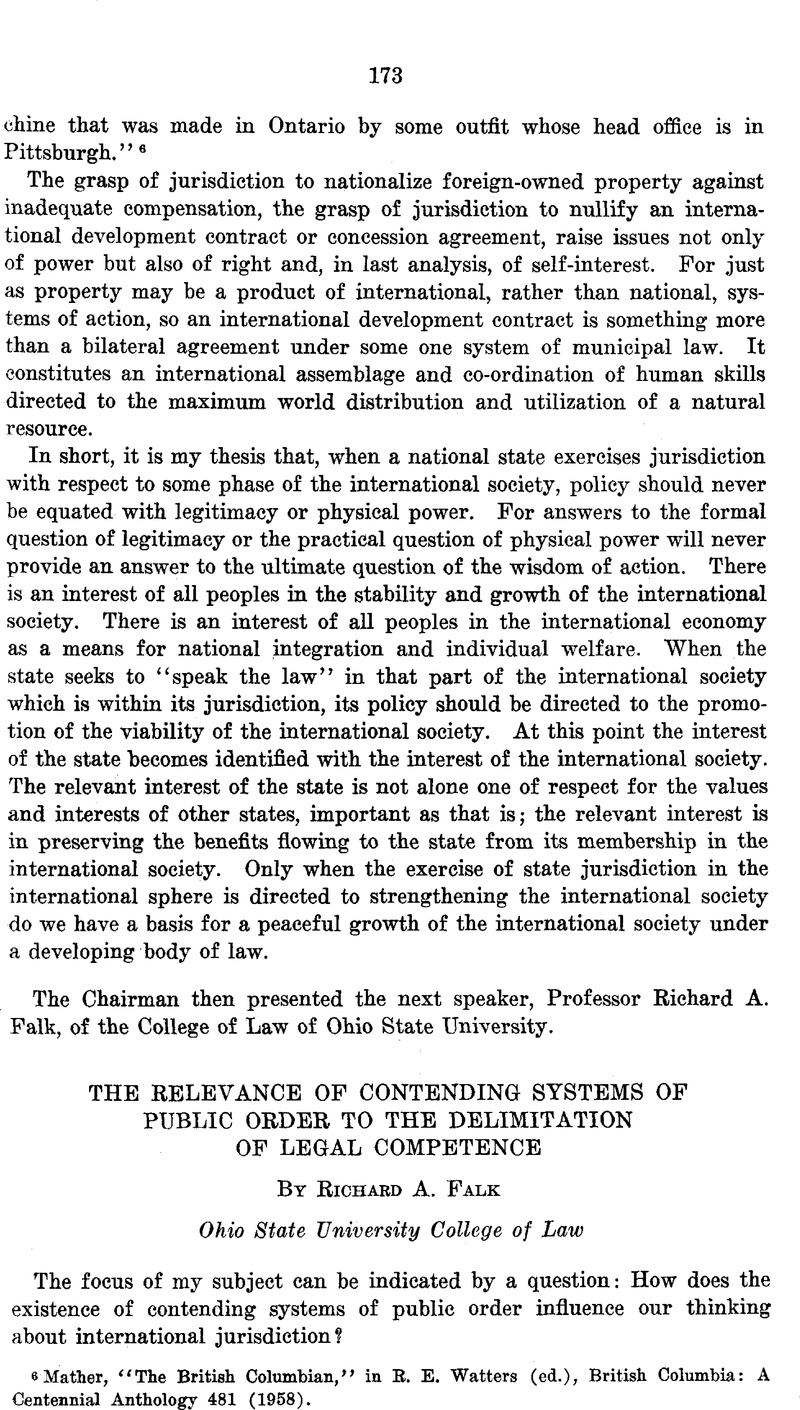No CrossRef data available.
Published online by Cambridge University Press: 27 February 2017

1 For a fuller exposition of this position see Falk, “International Jurisdiction: Horizontal and Vertical Conceptions of Legal Order,” 32 Temple Law Quarterly 295 (1959).
2 See enlightening discussion of jurisdiction in Jessup, Transnational Law 35–71 (1956).
3 Bestatement (Second), Conflict of Laws §42(1), Tent. Draft No. 3 (1956).
4 But for a most interesting series of suggestions as to the proper content of reasonableness in a jurisdictional situation, see McDougal and Burke, “Crisis in the Law of the Sea: Community Perspectives Versus National Egoism,” 67 Yale Law Journal 539, 570–573 (1958).v
5 MeDougal and Lasswell, “The Identification and Appraisal of Diverse Systems of Public Order,” 53 A.J.I.L. 1, 10 (1959).
6 Brodie describes this struggle as taking place between an expanding system (Soviet) and a status quo system (“United States). “The Anatomy of Deterrence,” 11 World Politics 173 (1959).
7 See, e.g., Edwards (ed.), A Cartel Policy for the United Nations 1–69 (1945).
8 For an excellent discussion of the philosophical basis of the relationship between internal public order systems and international stability, see Loewenstein, Political Beconstruction (1946).
9 See, e.g., Latvian State Cargo & Passenger S.S. Line v. McGrath, 188 F.2d 1000 (D.C. Cir. 1951), and cases cited at 1004, note 13.
10 For a very able and balanced presentation of the Soviet perspective, emphasizing the fairness accorded to non-Soviet claims, see Pisar, “Soviet Conflict of Laws in International Commercial Transactions,” 70 Harvard Law Eeview 593 (1957).
11 This point is made most persuasively in connection with a discussion of the law of war. See McDougal and Feliciano, “International Coercion and World Public Order: The General Principles of the Law of War,” 67 Yale L.J. 771, at 822, note 160 (1958).